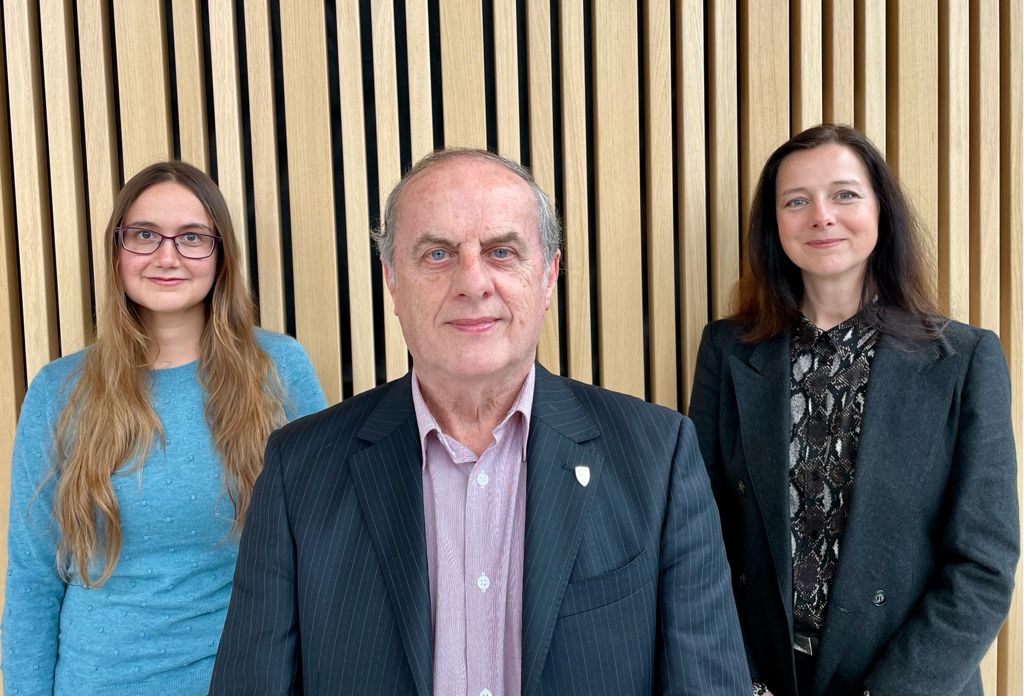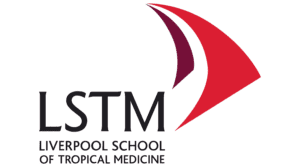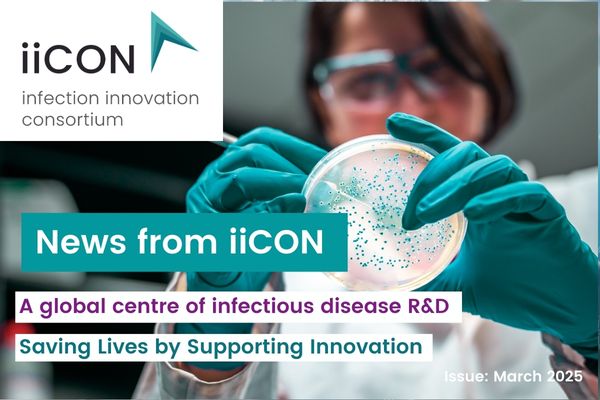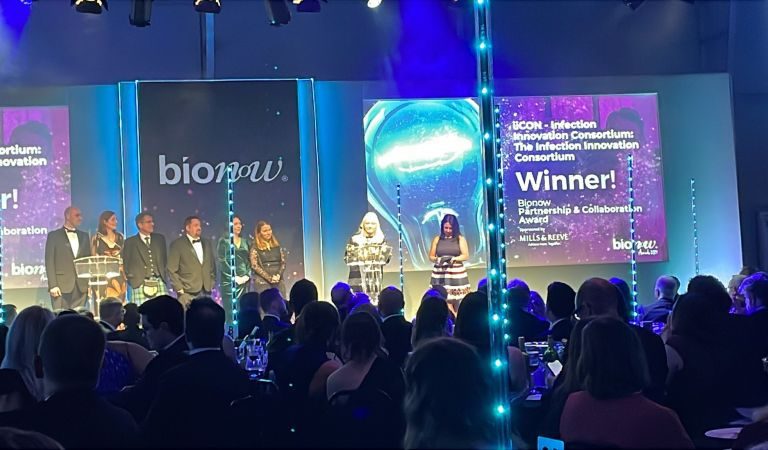- Join the Innovation Journey
- Our Platforms
iiCON supports Liverpool SME developing ‘game-changing’ lateral flow test technology

Nano Biosols, an SME based at Liverpool Science Park, has filed a patent for novel technology it has developed to enhance the sensitivity of lateral flow tests – enabling their use across a much broader range of diseases.
Lateral flow tests have been routinely used during the pandemic to detect infection. However, although lateral flow tests are a relatively cheap, user-friendly, and effective testing method, they are generally not as sensitive as the gold standard PCR test for detecting active infection. Nano Biosols’ novel gold nanoparticle technology can improve the sensitivity and readability of lateral flow tests in cases where detection lines are only faintly displayed.
Through the Infection Innovation Consortium (iiCON)’s Merseyside SME support programme, Nano Biosols worked with iiCON and its partners at Liverpool School of Tropical Medicine (LSTM) to undertake initial testing and evaluation of its novel technology. The diagnostics team at LSTM was able to evaluate lateral flow test performance with and without the addition of the Nano Biosols reagent and showed improved detection limits and readability of tests.
Adrian Walsh, Director of Nano Biosols, said: “We’re very encouraged with the results of the tests that have been undertaken on our novel technology through the iiCON programme. These results have enabled the company to file for patent protection and we are looking forward to undertaking further evaluations.”
Dr Lisa Baldwin, iiCON’s Senior Business Development Manager, said: “Lateral flow tests are an incredibly important tool for diagnosing infection in communities and during the pandemic, people have become very familiar with lateral flow tests to test for infection, however, these tests often don’t reach the gold standard of sensitivity that the more complex PCR tests offer.
“Nano Biosol’s novel technology has the potential to be a significant game-changer in infection diagnostics – enabling people to benefit from highly-sensitive, user-friendly tests that could be used to detect a huge range of infectious diseases.
“It’s incredibly encouraging to see the innovation emerging from SMEs in Merseyside that are coming through iiCON’s programme, and we’d encourage companies working in the infection space to get in touch if they have a product or therapeutic in development that they are looking to progress and would like to collaborate on.”
Dr Ana Cubas Atienzar, Post-Doctoral Research Associate at LSTM, said: ‘We’re very encouraged by the results of the tests we’ve conducted on Nano Biosols’ technology and the potential it has to significantly improve the performance of lateral flow tests. Nano Biosols technology could be added to any platform and be used for any target disease, so could represent a step-change in how we currently utilise lateral flow tests.”
iiCON, which is led by LSTM, bridges the gap in the infection innovation ecosystem between industry, academia, and the NHS to accelerate and support the discovery and development of innovative new anti-infectives.
The consortium proactively identifies and engages with the most innovative companies working in the sector globally. iiCON forges long-term collaborative relationships with these organisations and facilitates impactful partnerships that accelerate and enable innovative research and product development – bringing the next generation of game-changing new products to market more quickly, safely, and affordably. The iiCON consortium comprises LSTM, Liverpool University Hospitals NHS Foundation Trust, Unilever UK, the University of Liverpool, Infex Therapeutics, and Evotec at Alderley Park, Cheshire.
The activity was part funded by the European Regional Development Fund (ERDF) programme: Formulated Materials for Infectious Disease Prevention. This programme offers access to academic expertise to support innovation in Merseyside companies.





